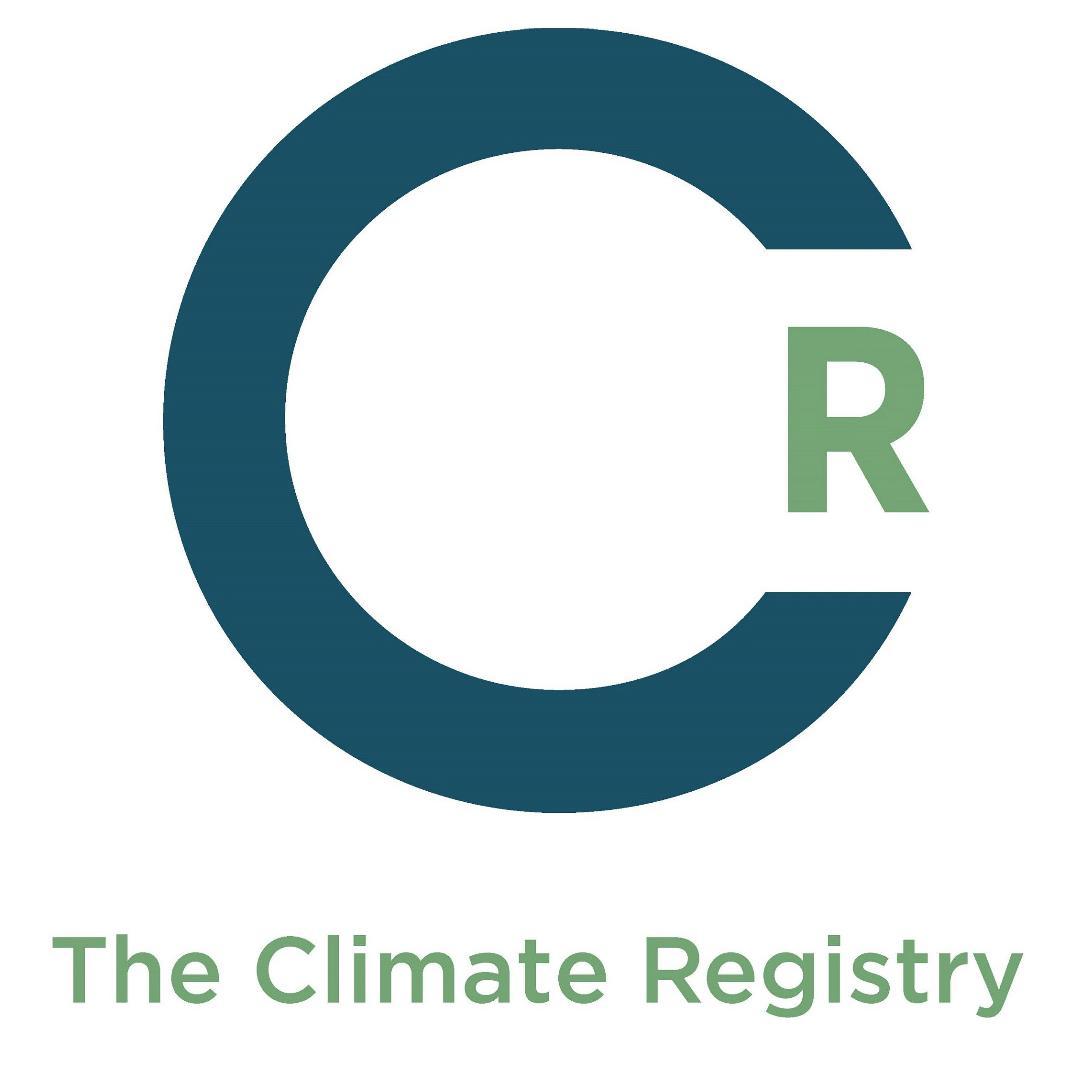Our team of GHG and Climate Change Strategy experts brings over 100 years of cumulative experience to each project.
Our Climate Change & GHG Services include:
Product Life Cycle Assessment (LCA)
Carbon Offset Project Quantifications
Energy Audits and Energy Use Management
Renewable Energy Applications
Livable City Solutions - Sustainable Cities, Campuses, Communities ›
Sustainability Training (GRI, CDP, SASB, IFRS, SBTi, EcoVadis) ›
GHG State & Federal Compliance Support
Audit of GHG Monitoring Plan and Procedures
Non-Applicability Documentation
Serving as Designated Representative's Delegated Agent for Submission for Annual Reports to U.S. EPA
What our clients are saying:
“Quite impressed with your responsiveness. It’s really a joy to work with you.”
“I want to thank you for your help with the very challenging greenhouse gas emissions issue. Your knowledge and prior work are so valuable to our current efforts on behalf of the industry.”
Greenhouse Gas (GHG) Emissions Inventory Reports
KERAMIDA provides consultation to determine if your facility is subject to mandatory reporting for greenhouse gas (GHG) emissions.
Your facility may be required to submit greenhouse gas (GHG) emissions inventory reports to the EPA if your business falls under one of the required source categories or exceeds the emission threshold for reporting as specified in federal regulation for GHG reporting. For facilities operating in California, you will also be subject to the California Regulation for Mandatory Reporting of GHG emissions and may potentially be required to submit both a federal and state GHG emission inventory report.
KERAMIDA can help your facility navigate through the federal and state reporting regulations to determine if you will be required to submit a greenhouse gas (GHG) emissions inventory report. If it is determined that you are subject to mandatory GHG reporting, KERAMIDA can prepare and submit your facility’s greenhouse gas (GHG) emissions reports under the supervision of our California Air Resources Board (CARB) Accredited Lead GHG Verifier. By being prepared and managed by a CARB Accredited Lead GHG Verifier, we can minimize any complications that may arise from the required third-party verification process for facilities operating within the state of California. In addition to checking the emission calculations and confirming that the data is collected in a way that is compliant with the reporting rule, we can prepare verification binders for you to keep on-site during the verification process.
GHG Verification & Assurance Services
KERAMIDA’s ESG Assurance Team includes CPAs, attorneys, PhD. engineers and PhD. scientists. We provide companies with third-party verification and assurance of GHG and other sustainability data. KERAMIDA is a CDP Global Gold Verification Provider and an AA1000 Licensed Assurance Provider. We offer independent validation and verification of GHG emissions for organizations across any industry in accordance with a variety of accepted standards, including ISO 14064-3 standards.
KERAMIDA can also verify your facility’s GHG footprint and evaluate your emission reduction opportunities for non-regulatory required purposes. This verification can be for stakeholder requests for sustainability or for self-disclosure reporting with recognized registries such as CDP and GRI. Being trained and certified as a California Accredited Lead GHG Verifier gives KERAMIDA the requirements and qualifications to verify projects registered with CDP and GRI.
KERAMIDA collaborated on the CDP whitepaper:
The business benefits of third-party verification of environmental data.
Learn more about our GHG Verification Services ›
Learn more about our CDP Reporting Services ›
GHG Emissions Reduction Strategies
Highlighted Projects:
KERAMIDA provides ongoing Climate and ESG consulting support to a leading private equity firm that targets infrastructure and real estate investments and has approximately $40 billion in assets under management. We help the Client’s portfolio companies to develop and implement their Climate Transition Plans and Science Based Targets.
Climate Risk Assessments & Management
Climate Adaptation and Resilience
Our multidisciplinary team of experts can help public and private businesses build climate resilience by developing adaptation strategies that identify and reduce risk. For companies interested in developing climate change adaptation strategies, KERAMIDA can assist in implementing climate risk management efforts to adapt to climate change, including crisis and emergency management for:
flooding from stormwater and rising sea levels
forest fires
water scarcity
utility outages
extreme heat/cold
Climate Transition Plan Consulting
KERAMIDA guides companies in developing a credible Climate Transition Plan that fulfills regulatory reporting mandates.
Meeting the regulatory and stakeholder criteria for a transition plan requires a cross-functional approach. We regularly engage with finance, risk, internal audit committees, executive leadership, operational units, and managers to develop feasible transition plans. Every company is different, so we customize our exact approach to climate transition planning to meet the needs of each corporation.
Our team of Climate Transition Planning experts supports clients with:
Review of CDP and Regulatory Climate Transition Plan criteria
Transition Planning Taskforce (TPT) alignment
Gap Analysis
Scope 1 and 2 GHG inventory
Disclosing and verifying Scope 1 and 2 GHG emissions
Scope 3 screening to identify hotspots
Evaluating and disclosing Scope 3 Emissions
Modeling out a reduction pathway to achieving net zero
Stakeholder Engagement
Identifying climate-related risks and opportunities
Conducting a scenario analysis that investigates the impacts of your identified climate-related risks
Validating your SBT with the Science-Based Target Initiative
KERAMIDA’s ESG Assurance Team includes CPAs, attorneys, PhD. engineers and PhD. scientists. We provide companies with third-party verification and assurance of GHG and other sustainability data. KERAMIDA is a CDP Global Gold Verification Provider and an AA1000 Licensed Assurance Provider. We offer independent validation and verification of GHG emissions for organizations across any industry in accordance with a variety of accepted standards, including ISO 14064-3 standards.
KERAMIDA's sustainability reporting training helps clients communicate their sustainability stories to their stakeholders. We offer GRI-certified and CDP-certified standards training courses. Register online now for in-person training taught by an experienced, certified sustainability reporting trainer.
Decarbonization Consulting
KERAMIDA’s approach to net zero decarbonization focuses on creating value and growth opportunities for our clients.
Our team of engineers and scientists provides sector-specific and company-specific decarbonization solutions that are tailored to your operations and regulatory requirements. We help companies implement decarbonization strategies to reduce their carbon footprint across their entire value chain, focusing on maximum impact and business opportunities.
Carbon Footprint Evaluation
Calculate your Carbon Footprint
KERAMIDA completes Scope 1, Scope 2, and Scope 3 Carbon Footprint determinations for corporations and governmental units. Our carbon footprint evaluations are used for Green Product certifications and include organizational and operational footprint boundaries (facility itself, product life cycle, suppliers), quantification factors, identification of emission sources, quantification methods, emission factors, source activity data, and voluntary or regulatory program requirements. KERAMIDA also develops carbon footprint tracking tools customized to each client’s needs and provides services for data acquisition, input, and validation. KERAMIDA's carbon footprint consultants advise clients on strategic communication of carbon footprints and reduction goals.
GHG Monitoring Plan and Procedures
KERAMIDA has provided services for:
Citizens Thermal Stationary Fuel Combustion
Citizen Gas Local Distribution Companies (GHG Supplier)
Knauf Glass Production Plants
Steel Dynamics Iron and Steel Production
Nucor Steel Iron and Steel Production
Crawfordsville Electric Light & Power Stationary Fuel Combustion
Greenhouse Gas Consulting
GHG Project Experience:
Carbon Footprint for Food Manufacturer
KERAMIDA completed a Greenhouse Gas Inventory for a food manufacturer in order to meet the requirements of Walmart’s Sustainability Product Index. The inventory was completed under the CDP protocol and included Scope 1 and 2 emissions. Limited Scope 3 emissions for packaging manufactured off-site was also included. Sources of emissions beyond energy use include water and wastewater treatment emissions.
Carbon Footprint for the Products of Medical Equipment Supplier
KERAMIDA completed a Carbon Footprint for a leading international medical and hospital equipment supplier for its global headquarters manufacturing facility. A team of key leadership staff representing product development, operations, engineering, and sales was advised by KERAMIDA on the appropriate boundaries to set for the carbon footprint and how to best communicate the results throughout the company. The Carbon Footprint included Scope 1, 2 and 3 emissions and a request from suppliers for Scope 3 emissions. KERAMIDA also performed carbon footprints for the products of two of the client’s suppliers. After compilation of one year of carbon footprint data, KERAMIDA provided the client with carbon footprint tracking tools to manage future years of data and set reduction goals.
GHG Inventories for Wood Furniture Manufacturing Facility
KERAMIDA performed greenhouse gas inventories for 12 wood furniture manufacturing facilities throughout the U.S. using the Business and Institutional Furniture Manufacturers Association (BIFMA) protocol. KERAMIDA also tailored the inventories to meet local emission factors associated with local electrical power generation facilities.
Energy Audit and GHG Inventories for Wood Furniture Production Facility
KERAMIDA performed an energy audit of the wood furniture production facility and corporate offices which included a greenhouse gas inventory and recommended energy conservation projects. KERAMIDA also provided the greenhouse gas inventory in the format required by the Business and Institutional Furniture Manufacturers Association (BIFMA).
Greenhouse Gas Inventory for the City of Cincinnati
KERAMIDA performed a greenhouse gas (GHG) emission inventory update for the City of Cincinnati, Ohio. The inventory was conducted using the International Council for Local Environmental Initiatives (ICLEI) Clean Air & Climate Protection (CACP) 2009 software applied to energy use for the 2009 calendar year. The update included comparing 2009 community and government GHG inventories to the baseline year, 2006, and evaluating specific projects implemented to reduce GHG emissions, energy use and cost. The ICLEI protocol and CACP software were used to compare current year energy use and GHG emissions to the base year and to explain the differences with individual projects, national energy trends, or climate change effects on the City of Cincinnati. A summary of the results was published in the Climate Protection Action Plan (The Green Cincinnati Plan).
Alternative Fuel Feasibility Studies for Cement Facilities
KERAMIDA assisted cement facilities in determining alternative fuel usage in their kiln. There are incentives for facilities, especially in California, to use bio-derived alternative fuels since emissions from the combustion of these fuels do not count towards the facility’s compliance obligation. A facility’s compliance obligation determines the amount of carbon credits that are needed to purchase. By combusting certain bio-based fuels, the emissions from this combustion do not need to be offset through the purchase of credits.
U.S. Department of Energy - Metal Casting Energy Use and CO2 Reduction Study
KERAMIDA performed a study of energy use in foundries and best practices for energy use reduction and CO2 generation reduction by manufacturing processes for the U.S. Department of Energy. The objective of this pioneering work was to conduct an energy and facility analysis of the metal casting industry to determine the theoretical minimum, best practice, and actual energy usage for different metals and processes used in the metal casting industry. This study also listed the work practices used by the best performing facilities to provide practical guidance to the industry for energy and CO2 emission reductions. The study was published in 2004 by the U.S. DOE Industrial Technologies Program and is titled, "Theoretical/Best Practice Energy Use in Metalcasting Operations." KERAMIDA was selected by the U.S. DOE and conducted the study and wrote the peer-reviewed publication for U.S. DOE under subcontract to Advanced Technology Institute in 2003-2004 for a budget of $100,000.
CO2 Emissions Reduction Strategy for a Major European Aluminum Producer
KERAMIDA performed a study for Indirect CO2 Emissions for a major aluminum producer and developed a winning CO2 emissions reduction strategy to successfully address the anticipated impact from the European Union’s CO2 regulations - Phase I (EU Emissions Trading Scheme Directive 2003/87/EC and resultant National Allocation Plans). The reduction strategy focused on the role of energy efficiency on indirect CO2 emissions and the assignment of benefits from the resultant CO2 credits. The study presented calculations of penalties resulting from CO2 emissions exceedances for each of the years of the regulatory implementation period. The study, furthermore, included an assessment of the legal framework for emissions trading at the International, European, and National levels.
GHG Memberships
KERAMIDA is a member of The Climate Registry and has provided GHG services to many multi-facility industrial clients, national industrial associations, law firms, and state organizations.
GHG Partnerships
Monitoring Solutions is a full service manufacturer dedicated solely to CEMS. With over 25 years of experience, they design and manufacture both extraction and dilution systems, and supply opacity, flow and oxygen systems for stack monitoring.
Related Projects:
Related Services:
KERAMIDA’s ESG Assurance Team includes CPAs, attorneys, PhD. engineers and PhD. scientists. We provide companies with third-party verification and assurance of GHG and other sustainability data. KERAMIDA is a CDP Global Gold Verification Provider and an AA1000 Licensed Assurance Provider. We offer independent validation and verification of GHG emissions for organizations across any industry in accordance with a variety of accepted standards, including ISO 14064-3 standards.
KERAMIDA's sustainability reporting training helps clients communicate their sustainability stories to their stakeholders. We offer GRI-certified and CDP-certified standards training courses. Register online now for in-person training taught by an experienced, certified sustainability reporting trainer.






































